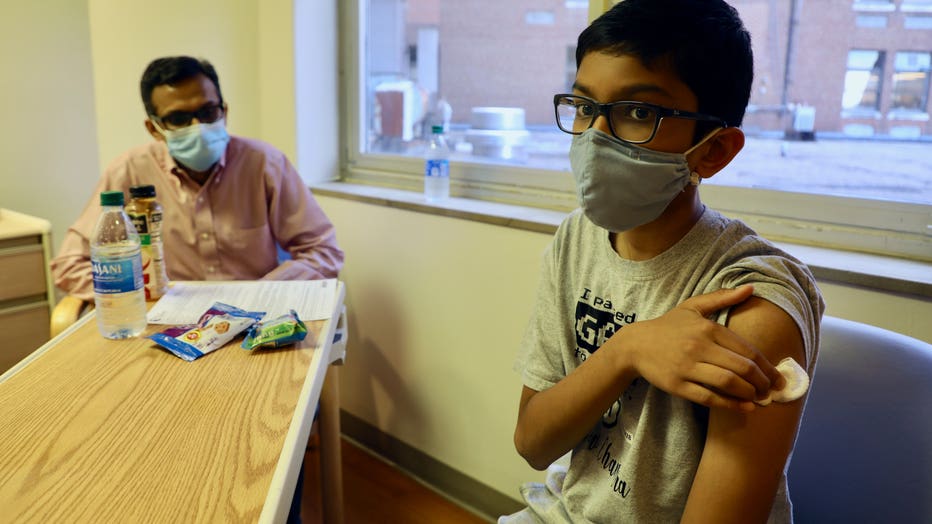Will COVID-19 vaccine protect kids? Pfizer launches new trial to find out
ATLANTA - A Cincinnati-area 12-year old named Abhinav recently became one of the youngest Americans to receive Pfizer's experimental COVID-19 vaccine.
The seventh-grader is part of a pediatric clinical trial recently launched at Cincinnati Children's Hospital, where his dad is also a vaccine study volunteer.
Dr. Robert Frenck, a pediatric infectious disease physician who heads up the vaccine center director, says Cincinnati Children’s has been working on COVID-19 vaccine trials with both Pfizer and AstraZeneca since about April.
"We started with adults and then a couple of weeks ago moved into adolescents," Frenck says.
Cincinnati Children's is one of 5 Pfizer pediatric vaccine testing sites, where researchers hope to enroll up to 2,600 tweens and teens between the ages of 12 and 18 nationwide.
Researchers are trying to better understand how this experimental vaccine that appears to be more than 90% effective in adults, according to early data, performs in children.
"I think there are a couple of reasons why it's so important to test children, too," Dr. Frenck says. "One is, there is the direct benefit of trying to prevent kids from getting infected. People talk about older people having a higher risk, and that's true. However, younger kids don't have zero risks. We've had almost 130 children in the United States die from COVID."

Abhinav is helping test Pfizer's COVID-19 vaccine in children ages 12-17.
Just over a million kids in the US have contracted COVID-19, according to a new report from the American Academy of Pediatrics and the Children's Hospital Association.
That's about 11.5% of all coronavirus infections in the US.
Within the last week, 112,000 children have contracted the virus, a record for a single week in this pandemic.
Most children have mild or no coronavirus symptoms, although, in very rare cases, the CDC says children can become severely ill.
Frenck says children may be transmitting the virus to others around them, another reason for having a pediatric vaccine may help slow the spread of the virus.
"I've been doing pediatrics for almost 40 years," he says. "If this virus isn't spread from children to adults, it will be the first virus I've seen where kids aren't spreaders."
WATCH: FOX 5 Atlanta live news coverage
The teens in the Pfizer trial will receive 2 shots, given 3 weeks apart.
They will track their symptoms and get regular blood draws to measure their immune response.
"I may be being overly optimistic, but I think it's reasonable to assume we could have a vaccine for at least adolescents, potentially even younger children, before the next school year," Dr. Frenck says.
When that time comes, Frenck knows, parents will want concrete answers about whether vaccinating their children is a good idea.
"I wouldn't want to come to you as a mother and say, 'I think I know what's going on with this vaccine. So, I think it's okay to give to your child," Dr. Frenck says. "I want to know."

